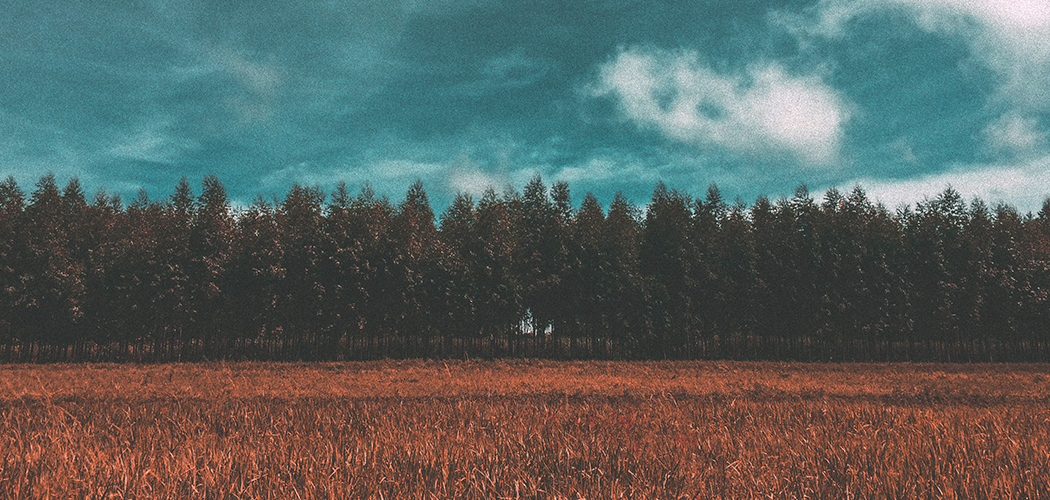[title subtitle=”words: Marla Cantrell”][/title]
The only reason my oldest daughter Reba Fay moved me in with her was because that wet-behind-the-ears doctor at the emergency room said I’d be dead by spring. I know it’s true. I overheard Reba Fay talking on the phone one day, telling her best friend all about it.
It’s been four years come October since I moved in. And let me tell you it ain’t no cakewalk for me either. My room is this little hole-in-the-wall nook, not much bigger than the cupboard in my old house. I try to keep to myself and enjoy the peace and quiet. Everybody’s always thinking old folks want chitchat. Well, Sister, not me. I’d give a hundred dollar bill to anybody who’d just show up and talk to me about something important: raising day lilies, crooked politicians, that smut that passes for TV these days.
When my other two girls, Mae and Opal June, come to visit, they generally start with questions about my good bowels and bad joints. But before long they gravitate to the story of their childhood. They ask me when they started to walk, what their first words were, when they had the chicken pox. I don’t remember most of it.
Mae, my middle girl, is the worst. The last time she visited she was acting real fidgety. I watched her pace and noticed she’s getting puffy under her eyes, which makes her look worn out even when she’s not.
“Mama,” she said, “how come you named me Mae? No middle name at all. How come you did that to me? Reba’s Reba Fay. Opal is Opal June. And I’m just Mae. Do you have any idea what it was like for me to grow up with everybody asking me what my middle name was and me having to explain I didn’t have one?”
Mae looked almost as old as me, standing there under the hard light of the ceiling fixture. Looked kind of out of place in her own skin. Like she woke up that morning and discovered she wasn’t the same girl she’d been when she crawled in bed the night before. She’s always been dramatic like that. Plus, she took acting classes down at the junior college when she was a teenager and now she uses it whenever she can.
I made her wait for an answer. Silence can be a powerful thing. I let Mae’s words hang in the air around me, trying to find room for them in my tired old head. When you get to be my age, your brain gets kind of like an old pocketbook. Packed so full of senseless junk that you can’t get to the important stuff, like, say, your house keys, without sifting through a whole load of garbage.
I sucked in my breath and pointed to the recliner that was next to mine. Mae sat down, grabbed the handle on the side of the chair and pushed herself all the way back. Looked like she was sitting in a dentist’s chair and wasn’t aiming on having a good time there.
“Let’s see,” I said. “You were born a year after my mama passed on. That was the year the drought hit Needmore and we were all just barely scratching by. The land wasn’t giving up nothing. There was no such thing as irrigation, so what crops did push through wilted right back into the earth. The dust from the bare fields blew through our house and on into town, dirtying everything in its path.
“Reba Fay wasn’t much more than a baby herself so I wasn’t aiming on having another child just yet. In fact, I was trying not to.” Mae blushed when I said that, so I hurried my story along. “Anyhow,” I said, “in no time at all I was expecting you.
“You’d of had to live through it to understand how one thing can tumble into another. How all those things can turn into one great, dark mood. Like I said, my mama had up and died. Without her to steady him, my daddy went on a drinking spree and took off. I didn’t see him again for five years, and by then he’d remarried a woman younger than I was. There wasn’t a soul left to take care of my brothers, your Uncle Billy and Uncle Harp. So I took them in. They were teenagers but big as grown men by then and ate like field hands—got in so much trouble I started calling the sheriff by his first name.”
I shifted in the recliner, tugged at the hem of my housedress.
“Little Reba Fay had just turned two. A sickly child. It all bore down on me. I was so tired I felt like I could’ve slept for a month. I think it’s funny how all your spare time comes at the end of your life when you don’t need it or even want it. And when you’re younger and worn out, well, Honey, good luck.”
Mae was pulling on her left earlobe, a habit she’d had since she was a toddler.
“Lawd, Mae, you were so small when you were born,” I said. “Almost three pounds less than Reba Fay. Somehow I got it in my head that I had to find exactly the right name for you. It seemed like the most important thing in the world. But every name I came up with just swallowed your little body. I thought how a heavy name would weigh you down. How a big name might smother you. I kept dwelling on my own name, Havelin Evangeline McWilliams Sullivan. I wrote it down and watched it spread across the page, like grape juice ruining a Sunday tablecloth. I was thinking how, if I’d had a smaller name, my life might have turned out easier somehow.”
Mae was working the rings on her right hand, pulling them over her knuckles.
“But mama did give me that huge name and it seemed all of a sudden like a curse. As I said, I was feeling mighty low at the time. And there wasn’t an 800 number to call back then. Nobody to tell you that you were suffering from a full-blown depression or that your hormones were out of whack. Nothing like that. You just let life take its best shot and then you picked yourself up and went on about your business.”
Mae was fiddling with the handle on the side of her chair, easing the footrest up a few inches and then dropping it down again. It occurred to me that I had never seen her still in her whole life, not even in sleep when her feet shifted the bed sheets, over and over, like she was pedaling a bike.
“Of course,” I said, “that theory ain’t held water. I know that now. You’ve had your share of trouble. More heartache than both your sisters put together.” With that, Mae perked up. She liked stories that showed her at a disadvantage. “And I have thought, from time to time,” I said, “that small names might hold a curse same as big ones. Your name has three letters and your trouble always seems to run in groups of three.”
I breathed in deep, debating whether I should mention Mae’s failings or not. “Take those three ex-husbands of yours. You couldn’t get a decent man out of that unhappy trio if you cut all the good that was in each of them and stacked it together. A nice elf maybe, but never a full-sized man.
“And your three boys. If God didn’t write spare the rod and spoil the child for those little rascals, then I don’t know who else He could have been thinking about.”
Mae eased her chair back up. Her chin was cupped in the palm of her hand and her elbow was propped on the arm of the recliner. “I have had it hard,” she said. “I just don’t like to complain.” And then she smiled, which seemed like a minor miracle.
“Mama,” she said, “that’s a wonderful story. Makes me kind of proud. Knowing I was special to you after all. We really ought to talk like this more often.”
Mae twisted the face of her watch to the front of her wrist and glanced down. “Goodness, I’ve got to be going. Ima Jean will be waiting for me. You remember my old friend, Ima Jean, don’t you?”
She was out the door before I could answer. Those long, silent pauses don’t work a hundred percent of the time. I was worn to a frazzle anyway.
Not everything I said was true. I never wrote my name down and regretted it. I never thought I was cursed. What I believed was that life was hard, people died too soon, and this baby was no exception. The whole thing seemed like a mean joke.
There was a dark-haired girl on the avenue, in downtown Needmore, who’d pull a piano on wheels out on the sidewalk in front of Ray-Ray’s Tavern and sing for tips. She was not a good girl; she wore dresses that showed her shoulders, and red lipstick and pink blush in the middle of the day, but she was a beauty, and every time we’d go to town, the men would look at her like she was the last drink of water in the Mojave Desert.
Her name was Mae. While I was expecting, I’d sometimes sit across the way, inside Marabelle’s Diner, and watch her perform.
One day I got up my nerve and talked to her. She wore blue eye shadow, and a man’s wedding ring on a chain around her neck. She was from Alabama, low country, and she pointed at my stomach, and said, “All I ever wanted was somebody to call my own.”
I don’t know how I knew it, but I was sure she’d never have a child. When my own baby was born, I gave her Mae’s name. As soon as I was able, I took my Mae to town, but Ray-Ray’s Tavern had already disappeared.
I felt like I’d lost my best friend, though I don’t know why. I remember those mornings after I knew she was gone; how it felt to be barefoot on wood floors that needed sweeping. At night, the moon seemed too far away and the stars too close. I’d unbraid my hair and sit on the front porch, the night loud with tree frogs, wanting to run away so bad I’d have to hang onto the arms of the swing to keep myself from going. But I never did run away. I never ever did.




